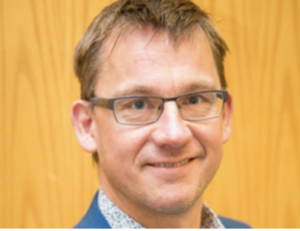Our People
Meet the team
Director
Professor Matthew Hilton
Matthew Hilton is Professor of Social History. He joined Queen Mary in 2016 after two decades at the University of Birmingham. He works on the history of consumption, social activism, non-governmental organisations, charities and humanitarianism, both in modern Britain and around the world. His books include Prosperity for All: Consumer Activism in an Era of Globalisation (Cornell, 2009), and, with James McKay, Nicholas Crowson and Jean-François Mouhot, The Politics of Expertise: How NGOs Shaped Modern Britain (Oxford, 2013). He is currently writing a history of British humanitarianism entitled: Charity after Empire: British Humanitarianism, Decolonisation and Development. He has served on several editorial boards, including that of Past and Present which he also co-edited for nearly a decade. He served on REF sub-panel for History in 2014 and 2021, was on the Advisory Board of the Arts and Humanities Research Council and is a former winner of the Phillip Leverhulme Prize. From 2016 until 2022 he Vice-Principal for Humanities and Social Sciences at Queen Mary.
See more
Faculty Members
School of History
Dr Liesbeth Corens
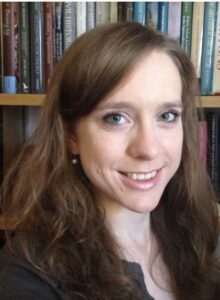
Liesbeth Corens is Senior Lecturer in Early Modern History. She is a historian of mobility, travel, archives, and the Catholic Reformation. Her research uses the case of the dispersed English and Dutch Catholic minorities as a means to reconsider the geographical, thematic, and chronological confines of scholarship on the Catholic Church in the early modern period. Her research focuses on minority Catholicism as an insightful case study to analyse the Counter-Reformation. Her first book, Confessional Mobility: England Catholics and the Counter-Reformation, assesses the lay English Catholic expatriate experience in terms of a broad concept of ‘confessional mobility’ (OUP, 2019).
See more
Dr James Ellison
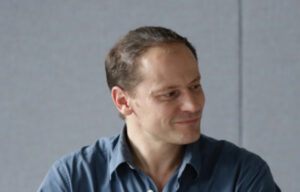
James Ellison is Reader in International History at Queen Mary University of London. He has published on Britain’s relationships with Europe and the United States after 1945 and, more widely, on the history of the Cold War and Europe. He is author of Threatening Europe: Britain and the Creation of the European Community, 1955-58 and The United States, Britain and the Transatlantic Crisis: Rising to the Gaullist Challenge, 1963-1968. He is currently researching UK-Russian relations during and after the Cold War.
See more
Professor Andrew Fitzmaurice
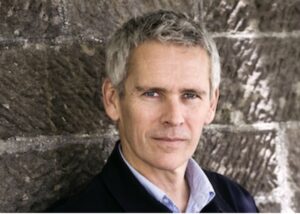
Andrew Fitzmaurice is Professor of the History of Political Thought in the School of History, Queen Mary University of London. His research has focused upon the ideologies of European empires. His early work concerned the political ideas of early American colonisation, notably in Humanism and America: An Intellectual History of American Colonisation, 1500 – 1625 (Cambridge, 2003). More recently he has been concerned with Europeans’ justifications for the appropriation of land and sovereignty in the non-European world from the sixteenth century through to the twentieth, particularly in Sovereignty, Property, and Empire 1500 – 2000 (Cambridge, 2014). His forthcoming monograph, King Leopold’s Ghostwriter, concerns the life of a nineteenth century jurist, Sir Travers Twiss, and the creation of the Congo Free State. His ongoing research interests include the political thought of non-state entities, particularly chartered companies.
See more
Dr David Geiringer
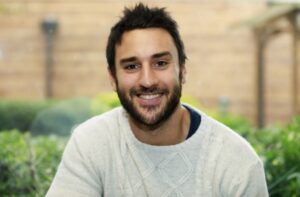
Dr Geiringer is a social and cultural historian of modern Britain, with a particular interest in the histories of sexuality, religion, gender and emotions. He has published on Catholicism and sexuality, participatory oral history methods, the history of the home computer and anti-racism in the inner city.
See more
Professor Mark Glancy
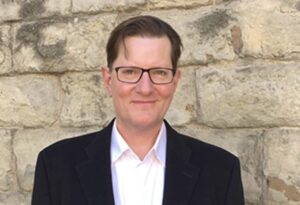
Mark Glancy is professor in Film History at Queen Mary University of London. His book, Cary Grant: The Making of a Hollywood Legend, is published by Oxford University (USA, 2020; UK 2021). He was editorial consultant on Becoming Cary Grant (Yuzu Productions, 2017), and he has written articles about Grant’s career for The Many Cinemas of Michael Curtiz (Palmer & Pomerance, eds) and London on Film (Hirsch & O’Rourke, eds). His other publications include Hollywood & the Americanization of Britain, From the 1920s to the Present (Tauris, 2014), The 39 Steps: A British Film Guide (Tauris, 2003), When Hollywood Loved Britain: The Hollywood ‘British’ Film, 1939-45 (Manchester University Press, 1999), and, as co-editor with James Chapman and Sue Harper, The New Film History: Sources, Methods, Approaches (Palgrave, 2007).
See more
Professor Emma Griffin
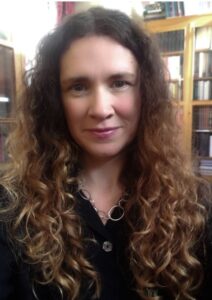
Emma Griffin is a Professor of Modern British History and Head of School at Queen Mary, University of London. She is the author of several books, and the President of the Royal Historical Society, 2020-24. She is the author of five books, most recently Bread Winner: An Intimate History of the Victorian Economy, published by Yale UP in 2020, as well as many articles, essays and reviews in both academic and non-academic publications. She is currently working on a book provisionally entitled Industrial Revolutions: A World History for Penguin Press / Allen Lane.
See more
Dr Leslie James
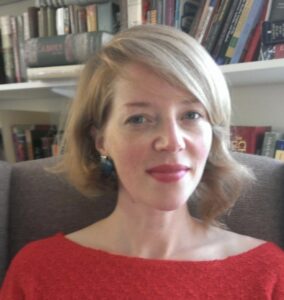
Leslie James joined Queen Mary in 2017. Prior to this she was a Leverhulme Early Career Fellow at the University of Birmingham, Department of African Studies and Anthropology and a Lecturer in World History at the University of Cambridge. Her broad interests include print cultures, imperial history and the history of anti-imperialism, decolonization, the Cold War, and African and Caribbean history.
See more
Dr David Harrap
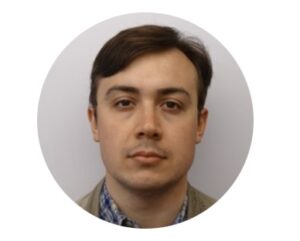
David Harrap is a teaching associate at Queen Mary University of London. He is an early career researcher interested in the religious history of Europe 1500 to 1700.
See more
Dr. Matt Jacobsen
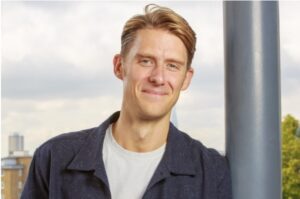
After completing his BA in English Literature at King’s College London in 2000, Matt studied at QMUL on the MA in Film and Communication. He has taught Film History and Theory for the School since 2002, and his interest in the enhancement and development of the student learning experience in the school led to his taking up of the post of Student Experience Manager between 2012 and 2017.
See more
Dr Lyndsey Jenkins
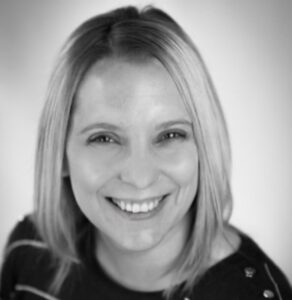
Lyndsey Jenkins is Honorary Research Fellow and a Departmental Lecturer at St Hilda’s College, Oxford and was previously Deputy Director of the Mile End Institute. Lyndsey’s recent research is on women’s activism within the Labour Party, particularly between 1945 and 1979. The existing scholarship has usually seen this as a period in which women in the Labour Party did not necessarily pursue women’s interests, especially in comparison with the earlier and later decades of the twentieth century. In contrast, her work suggests that Labour women continued to champion women’s causes, broadly defined; that in Parliament, they often did so in partnership with Conservative women; and that they were far more interested in, and receptive to, the emergence of the women’s liberation movement than has been acknowledged. As such, her work contributes to the scholarship which is challenging the periodisation of women’s activism into ‘first’ and ‘second’ waves by focusing on the neglected activism of the mid-twentieth century within political parties. Lyndsey is working on a partnership with Bruce Castle Museum and Archive in Haringey, London, to showcase the life and work of the pioneering MP Joyce Butler (1910-1992) and, with Ruth Davidson, Anna Muggeridge and Farah Hussain, is producing two collections examining the different forms of women’s politics in the twentieth century. These include a special issue on women’s grassroots politics since 1945 for Women’s History Review and an edited collection for Oxford University Press entitled Women, Power and Politics in Britain, 1945-1997 which examines their participation in more formal politics.
See more
Dr Charlotte Johann
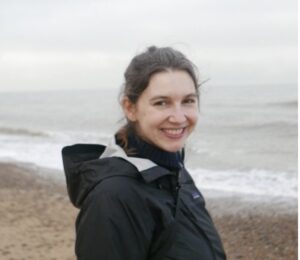
Charlotte is a historian of modern Europe working at the intersection of intellectual, legal and political history. Her research explores how competing visions of law impacted the theory and practice of politics in the long nineteenth century. Her forthcoming first book, The Quest for Law: Savigny, Germany, and the International Legal Order, traces the creation of a common legal order and its legacy in international law during Germany’s ‘stateless’ period, between the fall of the Holy Roman Empire in 1806 and the founding of the Kaiserreich in 1871. Her Leverhulme project The Politics of Corporate Rights in Britain and Germany, 1870-1920 investigates constructions of corporate personhood, and how they contributed to the practice of democracy in Britain and Germany.
See more
Dr Ria Kapoor
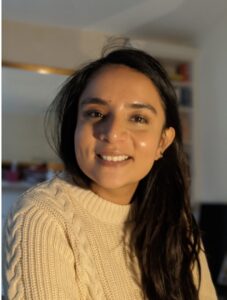
Ria Kapoor is a historian of refugees, immigration, and rights, with a focus on the Afro-Asian world and its impact on the international and global orders. She joined QMUL in 2022, following a year as a Simon Fellow at the University of Manchester. Prior to this, she was a teaching fellow at the University of Leeds. She completed a D.Phil in History at the University of Oxford in 2019, following Masters in International History at the Geneva Graduate Institute and an undergraduate degree from St. Stephen’s College of the University of Delhi. In addition, she spent two years as an editorial fellow with History Workshop Online (2020-2022).
See more
Dr Simon Layton
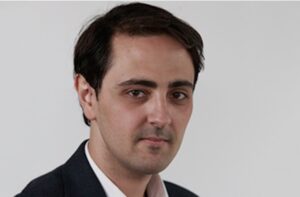
Simon Layton is the Lecturer in Early Global History. Originally from Aotearoa New Zealand, he completed his doctorate under the supervision of C. A. Bayly at the University of Cambridge, where he then lectured in World History for two years before joining the School of History at QMUL. He has also taught at Lingnan University in Hong Kong and at the University of Otago. His work explores the epistemological collision of local and indigenous concepts of maritime sovereignty and environmental custodianship with European imperial expansion in Asia and the Pacific.
See more
Professor Philippa Levine
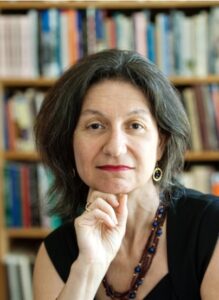
Philippa Levine is Professor at the Department of History at University of Texas at Austin and Global Professorial Fellow at Queen Mary University of London. Her research interests are the British Empire; intersections of race and gender; science, medicine and society. She is currently completing a book on nakedness, and also beginning a study of Jewish radicalism in East London, based in part on her own family’s experiences.
See more
Dr Andrew Mendelsohn

Andrew Mendelsohn joined QMUL in 2012 with 20 years of international academic experience. He studied at Harvard and Princeton, taught in five countries. He held a position at the Max Planck Institute for the History of Science, Berlin, with which he continues to collaborate. He also worked at Imperial College London, where he served as head of the Centre for the History of Science, Technology and Medicine.
See more
Dr Chris Moffat
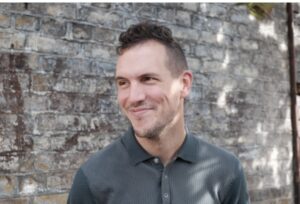
Chris Moffat is a political and intellectual historian of modern South Asia. His research and teaching are grounded in an interest in the ‘public life’ of history, and so questions of commemoration, conjuring, silencing and haunting are central to his work. His writing on the politics of the past draws on both archival and ethnographic methods. Chris joined Queen Mary in 2015, having completed his PhD at the University of Cambridge in 2014.
See more
Dr George Morris
Dr George Morris studied for his undergraduate and postgraduate degrees at the University of Cambridge, where he was also an AHRC Postdoctoral Fellow. During his PhD he held visiting fellowships at the Library of Congress and the Huntington Library. He joined Queen Mary University of London in 2024. His work mainly concerns belief and intimacy in modern Britain. Morris’s first book will be a study of Catholic and Anglican confession in nineteenth-century England, and what this intimate practice can tell us about modern Britain more broadly. The next project is also about belief and intimacy, but this time looks at the history of psychical research. An article he published on this subject won the Duncan Tanner Prize.
See more
Tanroop Sandhu
Tanroop Sandhu is a PhD candidate studying the political thought of South Asian leftists in the diaspora during the interwar period, under the supervision of Dr Chris Moffat and Professor Martyn Frampton. His research seeks to analyze the contributions that figures like Rajani Palme Dutt and Shapurji Saklatvala, among others, made to communist theory and anti-imperialist politics in both India and the imperial core. Tanroop completed his BA in History, and his MA in the Tri-University History Program, at the University of Waterloo. His other research interests include, broadly, the histories of anti-colonialism, communism, and the Indian independence movement.
Dr Robert Saunders
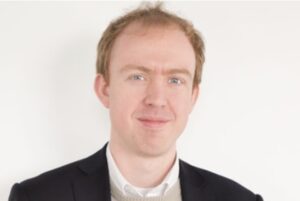
Robert Saunders specialises in modern British history, from the early 19th century to the present, focusing particularly on political history and the history of ideas. His research ranges from the history of democracy to the relationship between Britain and the European Union. He is currently researching a new history of democracy in Britain.
See more
Professor Barbara Taylor
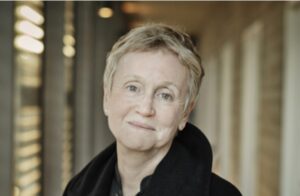
Barbara Taylor came to Queen Mary in 2012 to take up a joint professorship in the Schools of History, and English & Drama. Her previous post, which she had held since 1993, was in History at the University of East London. She has also held visiting professors at the universities of Amsterdam, Indiana, Notre Dame, and the École des hautes études en sciences sociales. She is the QMUL Director of the Raphael Samuel History Centre (a partnership between Queen Mary UL, Birkbeck College UL, the University of East London, and Bishopsgate Institute).
See more
Professor Dan Todman
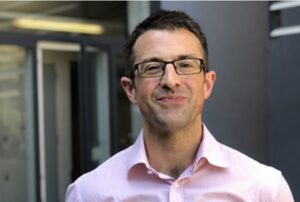
Dan Todman is Professor of Modern History and Deputy Vice Principal of Faculty of Humanities and Social Sciences at QMUL. He is a historian of war and its remembrance, specialising in the history of Britain and the British Commonwealth and Empire during the two world wars. He has recently completed the second of a two volume history of Britain’s Second World War which will be published by Penguin in 2020. These books are the first to bring together the military, social, political and economic histories of the war.
See more
Professor Amanda Vickery
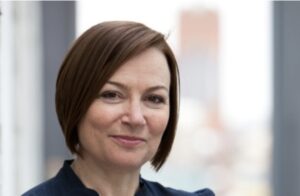
Amanda Vickery is Professor in Early Modern History. In 2010, Vickery was Kratter Professor at Stanford, USA. In 2015, Vickery was awarded an Honorary Doctorate, from the University of Uppsala, Sweden. In 2017-18, Vickery held the Eleanor Searle Professorship, California Institute of Technology/Huntington Library, USA. She has recently won a Director’s Fellowship, Folger Library, Washington DC, USA and a Fellowship at the Huntington Library, Ca, USA. She is an intellectual mentor for the University of Helsinki, Finland. Vickery is a regular commentator/reviewer for BBC Radio 4, BBC2, Channel 4, The Guardian, The London Review of Books & the Times Literary Supplement.
See more
Professor Kim A. Wagner
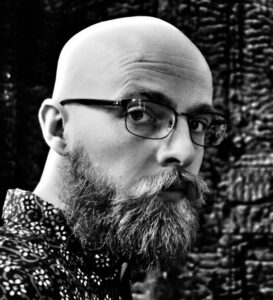
Kim Wagner is Professor of Global and Imperial History. He did his Ph.D. in South Asian history at the University of Cambridge (2000-03), supervised by the late Professor Sir C.A. Bayly. This was followed by a four-year Research Fellowship at King’s College, Cambridge, and a two-year Research Associate post at the University of Edinburgh. He was subsequently employed as Lecturer in Imperial and World History at the University of Birmingham, before joining Queen Mary in 2012. Between 2015 and 2018, he had a Marie Skłodowska-Curie Global Fellowship working with Dane Kennedy at George Washington University, DC. His current book-project, on U.S. colonial violence in the Southern Philippines and the Bud Dajo Massacre of 1906, will be published by Public Affairs in 2023.
See more
Dr Matthew Walker
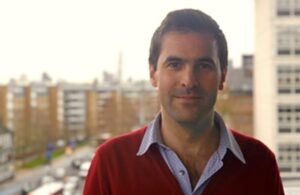
Matthew Walker is Lecturer in Architectural History. He is a historian of seventeenth and eighteenth-century British architecture. He joined Queen Mary in 2018, having previously taught in the architecture school of the University of New Mexico, and in the art history department of Oxford University before that. He also held an Andrew W. Mellon Postdoctoral fellowship at Oxford. He has a BA from Oxford and an MA and PhD from the University of York.
See more
Dr Rob Waters
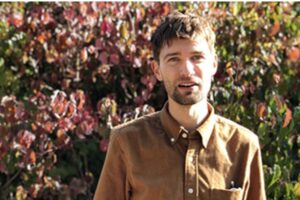
Rob Waters is the Senior Lecturer in Modern British History. He studied History at undergraduate and graduate level at the University of Edinburgh, before completing a PhD in English at Queen Mary University of London. He has since taught History, English, Sociology and Liberal Studies at Queen Mary, Birkbeck, New York University, the University of Sussex, and the University of Birmingham.
See more
Dr Chloe Ward
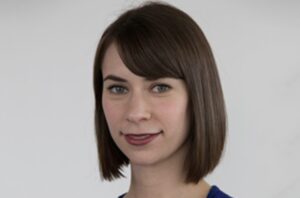
Chloe Ward is Senior Lecturer in the History of British Art. She specialises in Victorian and Edwardian art, focusing particularly on political art and the history of British drawing and illustration. She received her MPhil and PhD in the history of art from King’s College, Cambridge, and held a Curatorial Fellowship at Watts Gallery before joining Queen Mary in 2015.
See more
Professor Martyn Frampton
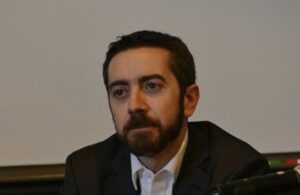
Martyn Frampton is Professor of Modern History. He joined Queen Mary in 2009. He has worked primarily in the spheres of modern British and Irish history until now. He also has a burgeoning interest in Anglo-US foreign policy and its role in the development of the modern Middle East and the politics of Islamism.
See more
Dr Sean Irving
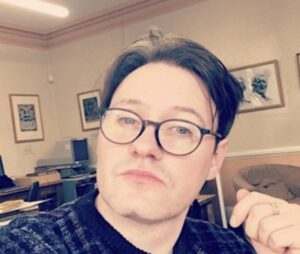
Sean Irving is Lecturer in Modern British History. He is a historian of modern Britain, with a particular focus on the ideas and politics of neoliberalism. More broadly, he specialises in the history of political economy and the relationship between debates about market competition, freedom, and ownership.
See more
Dr Michael Romyn
Michael Romyn is a Leverhulme Early Career Fellow working on the ’emotional experience’ of the English inner city from the 1970s to the present day.
Jenny Grant
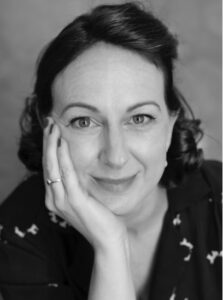
Jenny Grant is a PhD Student working on ‘Coalition and Culture Shock: The Experience of the Polish Armed Forces in Britain, 1939-46’
See more
School of English & Drama
Professor Pamela Clemit
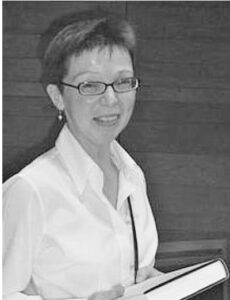
Pamela Clemit is Professor of Humanities. She took her undergraduate degree and her M. Phil. at Mansfield College, Oxford, and her D. Phil. at St Hugh’s College, Oxford. Her doctoral project, supervised by Marilyn Butler and Paul Hamilton, was on the novels of William Godwin and his followers, Charles Brockden Brown, Mary Wollstonecraft Shelley (Godwin’s daughter), and Edward Lytton Bulwer. She spent twenty-five years at Durham University, where she was successively Lecturer, Reader, and Professor. In 1999-2000 she was a member of the inaugural class of Fellows at the New York Public Library’s Dorothy and Lewis B. Cullman Center for Scholars and Writers (directed by Peter Gay). She was awarded a three-year Leverhulme Major Research Fellowship (2007-10), and has held Visiting Fellowships at, among other places, All Souls College, Oxford, and Wadham College, Oxford. She was the recipient of the Keats-Shelley Association of America Distinguished Scholar Award for 2016. She is a Supernumerary Fellow of Wolfson College, Oxford, a Fellow of the Royal Historical Society, and a Fellow of the English Association. She arrived at Queen Mary in 2015.
See more
Dr Angela Dunstan
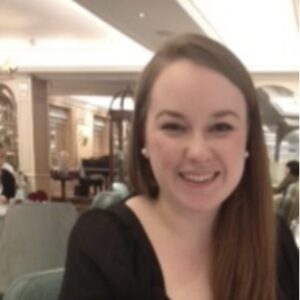
Angela Dunstan is Reader in English Literature and Visual Culture and International Lead for the School of the Arts. She specialises in the relationship between literature and visual culture, with particular expertise in the long nineteenth century. She has published widely on nineteenth-century texts and visual art, with emphasis on technologies of replication and discourses about artistry and authenticity in art, especially literary representations of material culture, sculpture, and sculpting machines. She also works on literature and urban culture, sculpture and public statuary, London’s museums and museology, art and activism (especially environmental), literary tourism and the history of interdisciplinarity in English Studies including the global circulation of reading and scholarly practices.
See more
Professor Rachael Gilmour
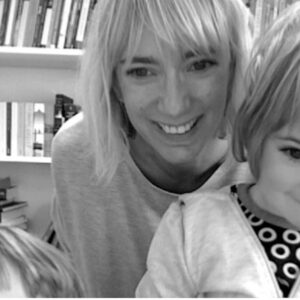
Rachael Gilmour is Professor of Contemporary Literature and Postcolonial Studies and Director of Graduate Studies. She has a background in linguistics and cultural history as well as literary study, and her research continues to draw these fields into conversation with one another. She is particularly interested in how questions of language, translation, and linguistic encounter are mediated by literary and other texts, in colonial, postcolonial, and global contexts – from eighteenth- and nineteenth-century South Africa, to contemporary multilingual Britain. As well as her own scholarship and collaborative editing projects, she served for five years as Editor-in-Chief of the Journal of Commonwealth Literature, and serve on the editorial board of Wasafiri: Journal of International Contemporary Writing, and Bloomsbury’s New Horizons in Contemporary Writing series. For three years she ran a project, Reading/Writing Multilingualism, working with local secondary school pupils in Queen Mary’s home borough, Tower Hamlets. In connection with that project she has published on the relationship between multilingualism and literature teaching, and developed a range of online resources for English teachers to use in the classroom.
See more
Dr Maya Parmar
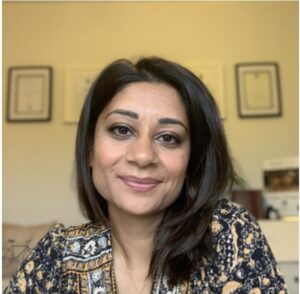
In January 2023, Maya Parmar joined the project ‘Remaking Britain: South Asian Connections and Networks, 1830s to the present’ at Queen Mary University of London. The project is Arts Humanities Research Council funded, led by the University of Bristol and Queen Mary University of London, in partnership with the British Library. Working first on the projects ‘Beyond the Frame: Indian British Connections’ and ‘At the Heart of the Nation: India in Britain’, and later on ‘Reading Communities: Connecting the Past and the Present’ and ‘READ-IT’ (Reading Europe Advanced Data Investigation Tool), she developed specialisms in cultural studies, diaspora and South Asian studies, digital humanities, oral history and reading studies.
See more
Professor Isabel Rivers
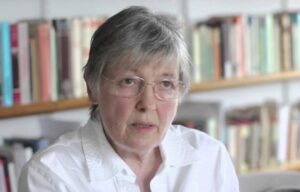
Isabel Rivers is Professor of Eighteenth-Century English Literature and Culture. She did her graduate research in the Department of English and Comparative Literature, Columbia University, New York. She had a one-year post at East Anglia followed by a Research Fellowship at Girton College, Cambridge, and spent 12 years at Leicester, where she was Lecturer and then Reader, and 19 years at Oxford, where she was Fellow and Tutor in English at St Hugh’s College, and successively Lecturer, Reader, Professor, and Leverhulme Major Research Fellow in the University. She came to Queen Mary in 2004. She was an associate editor of The Oxford Dictionary of National Biography (2004), responsible for theologians and freethinkers in the eighteenth century, and of The Oxford Companion to English Literature, 7th edn (2009), responsible for classical and biblical contexts of English literature. She was Co-Director of the Dr Williams’s Centre for Dissenting Studies (2004-2012), and is an active member of the Queen Mary Centre for Religion and Literature in English. She is an Emeritus Fellow of St Hugh’s College, an Honorary Fellow of the Manchester Wesley Research Centre, an Honorary Life Member of the International John Bunyan Society, a Fellow of the Ecclesiastical History Society, and a member of the Advisory Board of LERMA. She was a member of the AHRC Peer Review College 2014-2021.
See more
Bill Schwarz
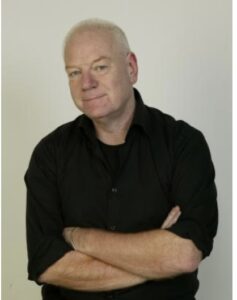
Bill Schwarz is Professor Emeritus of English. He studied English and History at York University, before moving to graduate work at the Centre for Contemporary Studies at Birmingham. He taught Sociology and Politics at Warwick, Cultural Studies at the University of East London, and Media and Communications at Goldsmiths, before arriving at Queen Mary in 2004. He is an editor of History Workshop Journal and General Editor (with Catherine Hall) of the Duke University Press series, “The Writings of Stuart Hall”.
See more
Professor Nadia Valman
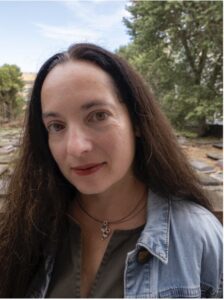
Nadia Valman is Professor of Urban literature. She is a scholar of nineteenth and twentieth century culture urban culture with special interests in religion, gender and migrancy. She studied English at the Universities of Cambridge and Leeds and completed her doctorate at QMUL. She taught at the University of Southampton for 10 years before returning to Queen Mary in 2007. At QM, she has developed teaching and public engagement events based on my research on London’s East End. She is currently working on a book on the literature of east London, to be published by Princeton University Press.
See more
School of Geography
Tom Chivers
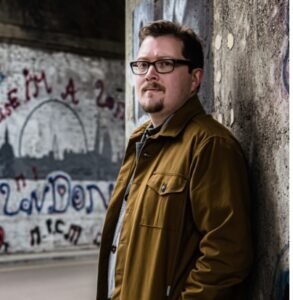
Tom Chivers is a PhD Student. He has been working in publishing and the performing arts for 18 years, alongside his practice as a poet and non-fiction writer. He is the founder and director of Penned in the Margins, and since 2004 has published over 90 books of poetry, fiction and non-fiction, and created numerous theatrical productions, touring shows and innovative arts projects. His research interests are in London history, public archaeology, fluvial geomorphology, medieval literature, contemporary poetry, heritage studies, arts management.
See more
Dr Archie Davies
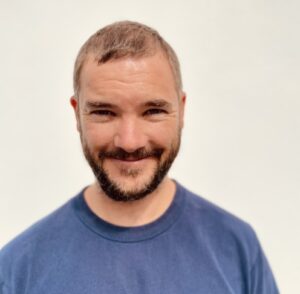
Archie Davies is Senior Lecturer in Geography and Fellow of the Institute of Humanities and Social Sciences. He is a cultural and historical geographer working across the fields of political ecology and the history and philosophy of geography. The first major theme of his research addresses food, hunger, nature, race, and embodiment. His second main research area is the history of twentieth century geographical ideas in Latin America, particularly the Northeast of Brazil. His first book, A World Without Hunger: Josué de Castro and the history of geography (Liverpool, 2023), tells the story of Josué de Castro (1908-73), a Brazilian activist, politician and geographer. I follow Castro from his hometown of Recife to the Brazilian Congress, the UN, and the radical worlds of post-1968 Paris. He is also a research-led translator from Portuguese to English.
See more
Jack Hanlon
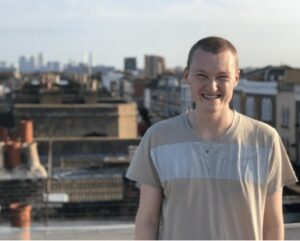
Jack Hanlon is a PhD student. He is an interdisciplinary researcher primarily interested in cities and food. His research addresses the historical evolution of the global food system from the perspective of urban space and public culture. He is particularly interested in how infrastructures and technologies that were built to facilitate the global circulation of commodity food – cold stores, docks, warehouses, supermarkets – have also shaped the landscapes and cultures of urban life. His work addresses the contested histories of taste, ecology, labour, and migration that are embedded in the spaces that emerged between modern ‘farms and forks’.
See more
Professor Miles Ogborn
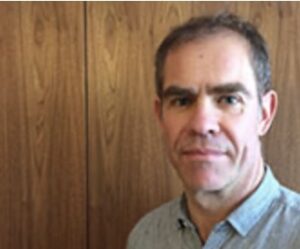
Miles Osborn is Professor of Geography. He is an historical geographer concerned with understanding the relationships between power, space and knowledge in a range of mainly eighteenth-century contexts. His most recent book (The Freedom of Speech: Talk and Slavery in the Anglo-Caribbean World, 2019) investigated how different forms of talk – such as evidence giving in court, discussions of the plants that grew on the islands, and communications with the world of gods and spirits – demonstrate the complexities of the power relations of slavery and empire. He is now working on the historical geographies of slavery and freedom in Jamaica. For example, his discussion of ‘Slavery, Freedom and the Jamaican Landscape’ on the British Library’s Picturing Places webspace and a paper on the last and largest uprising in the British Caribbean colonies, “Fire in Jamaica, 1831-32”in Journal of British Studies.
See more
Professor Alastair Owens
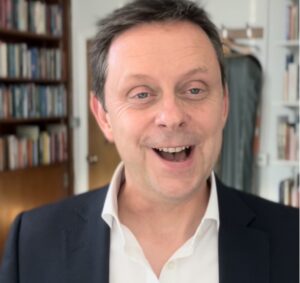
Alastair Owens is Professor of Historical Geography.He is an historical geographer and social and economic historian working on modern Britain since c.1800. He has a particular interest in London, which is also a core focus of his teaching interests and expertise. During 2024 his work is generously supported by a Leverhulme Research Fellowship to pursue my project ‘Inheritance, families and “wealthfare” in England and Wales, 1850–1930’. He is the Chair of Trustees and a past President of the Geographical Association, the UK’s leading subject association for teachers of geography.
See more
Dr Elizabeth Storer

Elizabeth Storer is Lecturer in Health Geography working across a broad range of disciplines including geography, anthropology, development studies and public health. Her research broadly explores forms of care which are not adequately valued by the state and international health actors. Research projects centre on 1) visibilising the health effects of state abandonment, and on the processes of care which emerge to ameliorate and protest historic and contemporary inequalities 2) the politics of defining particular health crises 3) the workings of interdisciplinary evidence and power in the production of health-policy, with particular focus on the ethics integrating communal responses to trauma and healing into policy. Her research seeks to learn from place-based vernaculars and renditions of care, and is grounded in ethnographic and participatory approaches. The focus of research typically emerges from periods of extended engagement with places, or from collaborations with health activists and associations working within them. I have been privileged to be hosted in the West Nile sub-region of Uganda for much of my research, as well as in Kenya, Italy and the UK. Her research is fuelled by vibrant and active collaborations with anthropologists at SOAS and LSE, as well as researchers and practitioners within the NHS and diaspora care networks.
See more
School of Business and Management
Dr Ed Legon
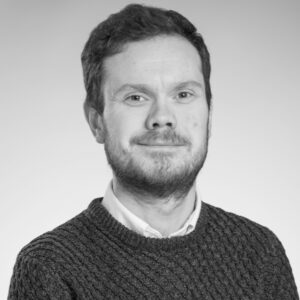
Ed Legon is Senior Lecturer in Heritage Management and Business History. He is Programme Director of the Heritage Management MA, a teaching collaboration between Queen Mary and Historic Royal Palaces. Ed’s research and teaching interests straddle two broad areas. The first concerns the history of production, trade, and work, and specifically the political culture of textile workers in early modern England. He is currently researching and writing a book and articles on this subject. Ed’s second research area corresponds with his role as Programme Director of the MA Heritage Management. He is interested in ecclesiastical and industrial heritage in contemporary London, as well as the history of heritage discourse.
See more
Languages, Linguistics and Film
Dino Jacovides
Dino is part of the production team in the Department of Film studies. He teaches camera, sound, lighting as well as editing technique. Dino loans and maintains all the production equipment and is on hand to help answer any technical questions.
See more
Dr Mario Slugan
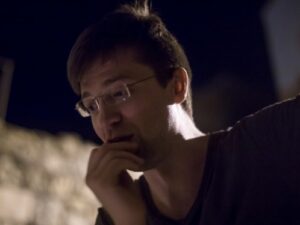
Mario Slogan is Senior Lecturer in Film Studies. His research stands on the intersection of film studies, philosophy and German studies. His book-length projects have been on the history, theory, and aesthetics of montage across literature, film, and visual arts – Montage as Perceptual Experience: Berlin Alexanderplatz from Döblin to Fassbinder (Camden House, 2017) – on the application of philosophical aesthetics to film theory – Noël Carroll on Film: A Philosophy of Art and Popular Culture (Bloomsbury, 2019) – and on the way fiction and non-fiction was understood prior to the emergence of labels such as “documentary” and disclaimers such as “all persons fictitious” – Fiction and Imagination in Early Cinema: A Philosophical Approach to Film History (Bloomsbury, 2019, BAFTSS 2021 Best Monograph Runner-up). My latest monograph – Taking Film Fiction Seriously: A Philosophical Approach to Cinema Studies (Bloomsbury, 2025, forthcoming) – bridges film studies and philosophy of fiction, to provide a rare theory of what fiction film is.
See more
Professor Georgios Varouxakis
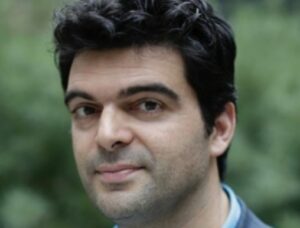
Georgios Varouxakis is Professor of the History of Political Thought. He studied History and Archaeology at the National and Kapodistrian University of Athens. Then he completed an “MA in Legal and Political Theory” at University College London (UCL) and a PhD in History at UCL. After eight years at Aston University, Birmingham, he joined Queen Mary in 2006. His work to date has concentrated on the nineteenth and twentieth-century history of political thought and intellectual history with a particular emphasis on international political thought, political thought on nationalism, patriotism and cosmopolitanism, empire, and the intellectual history of ideas of “Europe” and “the West”, as well as of attitudes towards the EEC/EU. His fourth book monograph is The West: The History an Idea (Princeton University Press, 2025. His earlier books include Liberty Abroad: J.S. Mill on International Relations (Cambridge University Press – “Ideas in Context” series, 2013), Victorian Political Thought on France and the French (Palgrave Macmillan, 2002), Mill on Nationality (Routledge, 2002), and Contemporary France: An Introduction to French Politics and Society. (Arnold, 2003, co-authored with David Howarth).
See more
School of Politics and International Relations
Dr Peter Brett
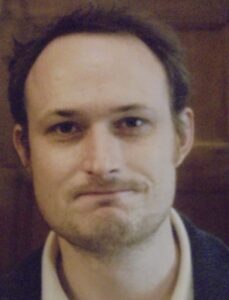
Peter Brett is Senior Lecturer in International Politics. Peter joined the School in 2015. Previously he was a Teaching Fellow in Politics at the School of Oriental and African Studies (SOAS), where he did his graduate studies. He has also worked as an Adjunct Professor at Richmond – the American International University in London, and has taught at the University of Paris (Panthéon-Sorbonne). While at Queen Mary he has taught regularly at the University of London in Paris. He is currently the co-convenor (with Dele Kogbe) of the British International Studies Association working group on Africa.
See more
Dr Madeleine Davis
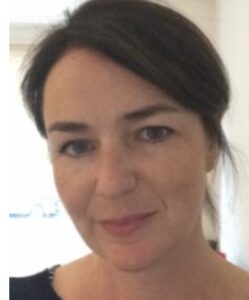
Madeleine Davis is a Reader in Politics. Madeleine’s main research interest is in the history of the left in Britain, with a focus on the development of socialist political thought in the mid to late twentieth century. She has a particular interest in the work of intellectuals and activists associated with the post-1956 British New Left, as well as some aspects of communist and labour history. Madeleine completed both her undergraduate and postgraduate degrees at the University of London. She joined Queen Mary as a lecturer in 2000, shortly after completing her PhD. Madeleine is a member of the editorial collective of Socialist Register, and of the advisory board of Soundings. She is an associate of the Raphael Samuel History Centre (RSHC) and is a member of two specialist groups of the UK Political Studies Association, the Labour Movements Specialist Group, and Left Radicalism Specialist Group.
See more
Dr Marzia Maccaferri
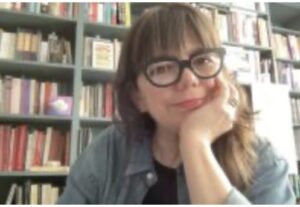
Marzia Maccaferri is a Teaching and Research Associate. Prior to joining Queen Mary, she taught at Goldsmiths (University of London), LUISS-Rome, University of Modena and Reggio Emilia, University of Bologna. She completed a PhD in Political History at the University of Bologna in 2005; at Queen Mary she is doing a second PhD on the reception and resemioticisation of Antonio Gramsci’s Notebooks into British Marxism and political discourse.
See more
Dr Colm Murphy
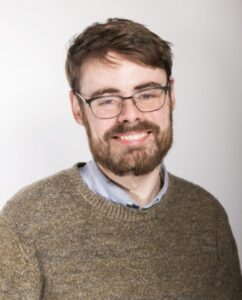
Colm Murphy is a Lecturer in British Politics. Colm became Lecturer in British Politics at Queen Mary University of London in 2022. He is a historian of modern British and Irish party politics, political culture, and political economy. His first book, Futures of Socialism (2023), interrogated debates about the political future of the Labour Party (UK) from the 1970s to the 1990s, a period of defeat and disorientation for the left across Europe and North America. Colm has published several additional articles and book chapters on 1970s-80s social democracy (including its political culture, evolving electoral strategy, and economic policymaking) and on Irish labour relations and nationalism in the 1910s. His more recent work has focused on the discipline of political history, the politics of ‘austerity’, and the Keynesian political tradition. Since 2018, Colm has worked for the Mile End Institute and is currently its Deputy Director. His research has been published, cited or mentioned in media outlets like the Observer, City AM, History Today, Prospect, Times Radio, the Fabian Review, and the Irish Examiner, and he has appeared on France 24 and Deutsche Welle’s ‘Inside Europe’. He is a co-convenor of the ‘Britain at Home and Abroad since 1800’ seminar at the Institute of Historical Research, a Special Sections co-editor at The Political Quarterly, and a Contributing Editor to Renewal: A Journal of Social Democracy.
See more
Dr James Strong
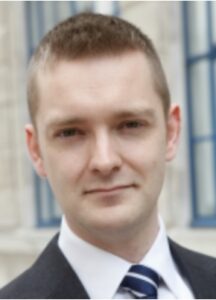
James Strong is Reader in British Politics and Foreign Policy. He joined the School of Politics and International Relations as a Lecturer in September 2017, and was promoted to Senior Lecturer in October 2019. He previously spent four years as a postdoctoral fellow in the Department of International Relations at LSE, where he received his PhD in 2012. He spent the 2012-2013 academic year as Head of the Director’s Office at LSE, supporting LSE Director and President Professor Craig Calhoun. In an earlier life he worked as a graduate trainee at KPMG LLP, specialising in US and UK personal tax.
See more
Mile End Institute
Thomas Chidwick
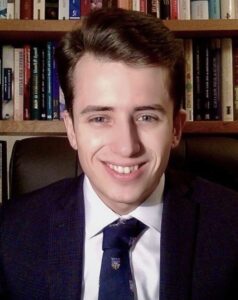
Tom is the Manager of the Mile End Institute and oversees all aspects of the Institute’s work. He is responsible for planning and delivering the Institute’s events programme, and identifying new partnerships and research projects, as well as the Institute’s communications. He represents the Mile End Institute at internal and external meetings, public events and academic conferences.
See more
